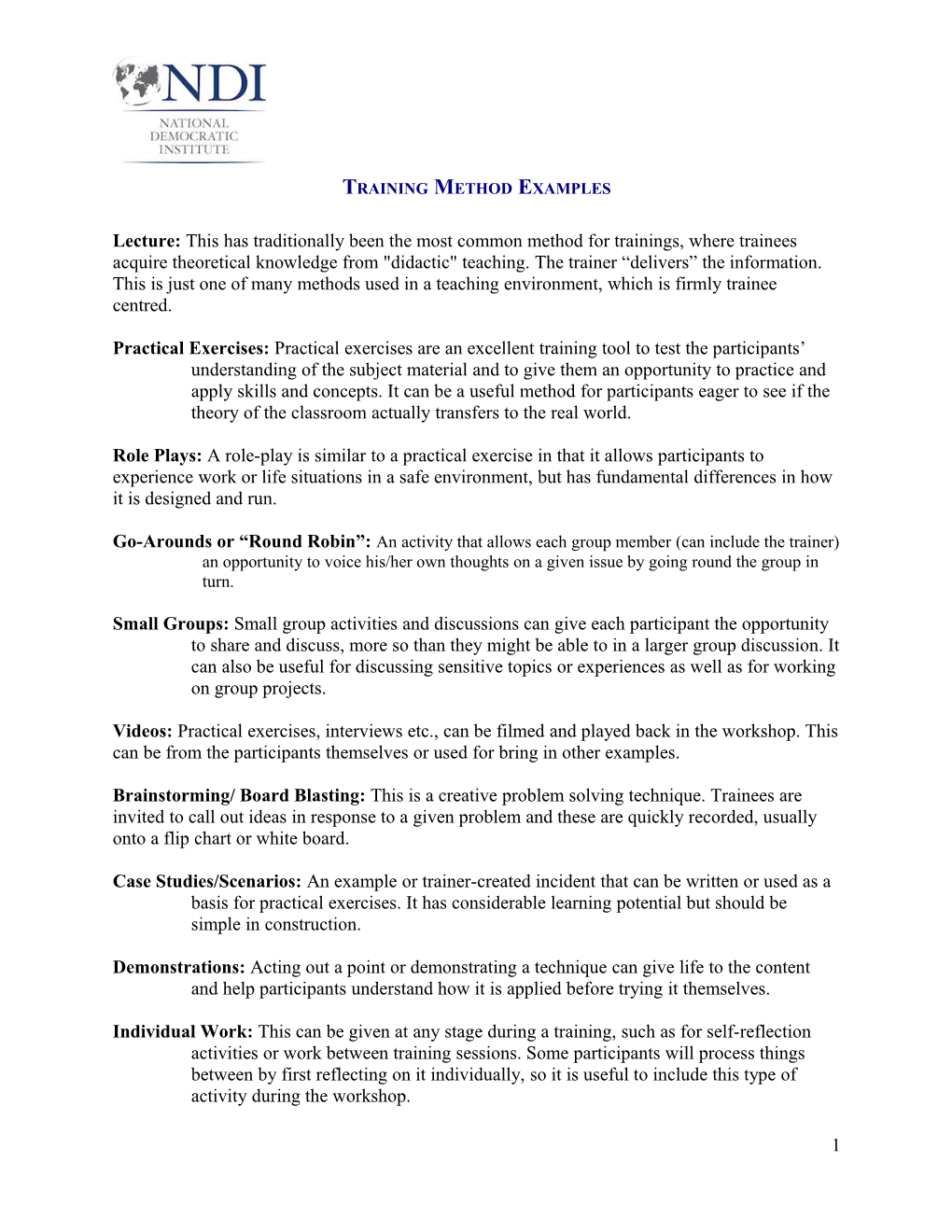Training Method Examples
Lecture: This has traditionally been the most common method for trainings, where trainees acquire theoretical knowledge from "didactic" teaching. The trainer “delivers” the information.This is just one of many methods used in a teaching environment, which is firmly trainee centred.
Practical Exercises: Practical exercises are an excellent training tool to test the participants’ understanding of the subject material and to give them an opportunity to practice and apply skills and concepts. It can be a useful method for participants eager to see if the theory of the classroom actually transfers to the real world.
Role Plays: A role-play is similar to a practical exercise in that it allows participants to experience work or life situations in a safe environment, but has fundamental differences in how it is designed and run.
Go-Arounds or “Round Robin”: An activity that allows each group member (can include the trainer) an opportunity to voice his/her own thoughts on a given issue by going round the group in turn.
Small Groups: Small group activities and discussions can give each participant the opportunity to share and discuss, more so than they might be able to in a larger group discussion. It can also be useful for discussing sensitive topics or experiences as well as for working on group projects.
Videos: Practical exercises, interviews etc., can be filmed and played back in the workshop. This can be from the participants themselves or used for bring in other examples.
Brainstorming/ Board Blasting: This is a creative problem solving technique. Trainees are invited to call out ideas in response to a given problem and these are quickly recorded, usually onto a flip chart or white board.
Case Studies/Scenarios: An example ortrainer-created incident that can be written or used as a basis for practical exercises. It has considerable learning potential but should be simple in construction.
Demonstrations: Acting out a point or demonstrating a technique can give life to the content and help participants understand how it is applied before trying it themselves.
Individual Work: This can be given at any stage during a training, such as for self-reflection activities or work between training sessions. Some participants will process things between by first reflecting on it individually, so it is useful to include this type of activity during the workshop.
Knowledge Checks (also known as Examinations, Quizzes or Tests):The trainer should be constantly checking to ensure that individuals are acquiring the necessary knowledge, skills and abilities as they move through the training content. This can often be accomplished by simple questioning during classroom sessions. It gives the opportunity to clarify misconceptions and can inform the rest of the training schedule based on where the participants are with the concepts already covered.
Large Group Discussions: These can be used throughout a training workshop, and are often used at the beginning and close of a session.
Opening Exercises: These are similar in many ways to “ice breakers” that are used to start a course and allow group members to get to know each other quickly, and thus help create a safe learning environment.
1
